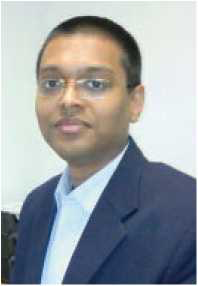Ankit Agrawal
1 Department of Electrical and Computer Engineering, Northwestern University, USA
EXTENDED ABSTRACT: The increasing availability of data from the first three paradigms of science (experiments, theory, and simulations), along with advances in artificial intelligence and machine learning (AI/ML) techniques has offered unprecedented opportunities for data-driven science and discovery, which is the fourth paradigm of science. Within the arena of AI/ML, deep learning (DL) has emerged as a game-changing technique in recent years with its ability to effectively work on raw big data, bypassing the (otherwise crucial) manual feature engineering step traditionally required fbr building accurate ML models, thus enabling numerous real-world applications, such as autonomous driving. In this talk, I will present our ongoing research in Al and high performance data mining, along with illustrative real-world applications to learn the forward and inverse processing-structure-property-perfbrmance (PSPP) relationships in materials science. In particular, we will discuss approaches to gainfully apply DL on big data (by accelerating DL and enabling deeper learning) as well as on small data (deep transfer learning). I will also demonstrate some of the software tools developed in our group.

Dr. Ankit Agrawal is a Research Professor in the Department of Electrical and Computer Engineering at Northwestern University, USA. He specializes in interdisciplinary artificial intelligence (Al) and big data analytics via high-performance data mining, based on a coherent integration of high-performance computing and data mining to develop customized Al solutions fbr big data problems with real-world impact. His research has contributed to large-scale data-driven discoveries in various scientific and engineering disciplines, such as materials science, healthcare, social media, and bioinfbrmatics. He has co-authored 200+ peer-reviewed publications, co-developed and released 20+ software, delivered 50+ invited/keynote talks at major conferences, universities, and companies all over the world, been on program/organizing committees of 50+ conferences/workshops, and served as a PI/Co-PI on 20+ projects funded by various US federal agencies (e.g., NSF, DOE, AFOSR, NIST, DARPA, DLA) as well as industry (e.g., Toyota Motor Corporation Japan). He is one of the few computer scientists who are actively introducing Al and advanced data science techniques in the field of materials science and has successfully led several large-scale materials informatics projects. As an example, he is co-leading the Al group at the Center fbr Hierarchical Materials Design (CHiMaD), which is a $60 million NIS'Tsponsored center of excellence. He is also serving as the Editor-in-Chief of Computers, Materials & Continua.